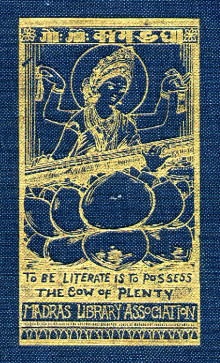Some recent links relevant to the materiality of cognition, books and communication.
Evidence Rebuts Chomsky’s Theory of Language Learning @sciam http://bitly.com/2ccc1Nn
“Chomsky allowed for this kind of “pragmatics”—how we use language in context—in his general theory of how language worked. Given how ambiguous language is, he had to. But he appeared to treat the role of pragmatics as peripheral to the main job of grammar. In a way, the contributions from usage-based approaches have shifted the debate in the other direction to how much pragmatics can do for language before speakers need to turn to the rules of syntax.” Outlines a growing movement away from a computational to a contextual theory of language, which supports embodied/enactive theories of cognition and reinforces the role of material artifacts in communication.
ICYMI: Oldest Manuscript in the Americas Confirmed – D-brief http://bitly.com/2c1W4Mm
Judging a book through its cover http://bitly.com/2cp3W9E
“New computational imaging method identifies letters printed on first nine pages of a stack of paper.” Thanks to Michelle Cornelison Smith for the link.
So who put the cyber into cybersex? | John Naughton reviews Rid, The Rise of the Machines http://bitly.com/2cgpiF2
‘If this absorbing, illuminating book needs a motto, it is an aphorism of Marshall McLuhan’s friend, John Culkin. “We shape our tools”, he wrote, “and thereafter our tools shape us.” ‘
An early internet pioneer says the construction of the web is crippling our thinking http://bitly.com/2ciI12K
Brief introduction to Ted Nelson’s Borgesian vision of hypertext, with links facing both directions. “Our ability to see connections between texts, with free movement of non-sequential text, would be transformative. Nelson hopes that one day, his vision for a document that allows such relationships between texts will be realized, and eventually commonplace. “There are precedents throughout the literary world,” he says. “But the notion of making it a fundamental format seems to have been left to me.””




